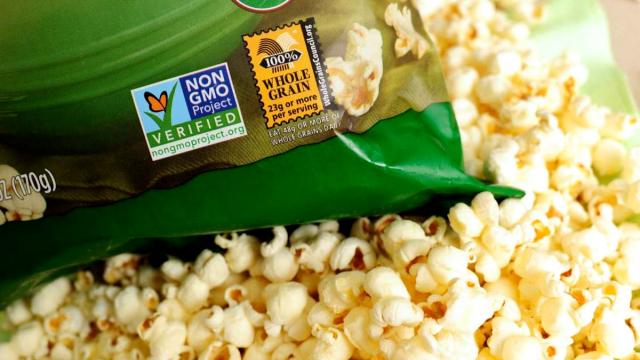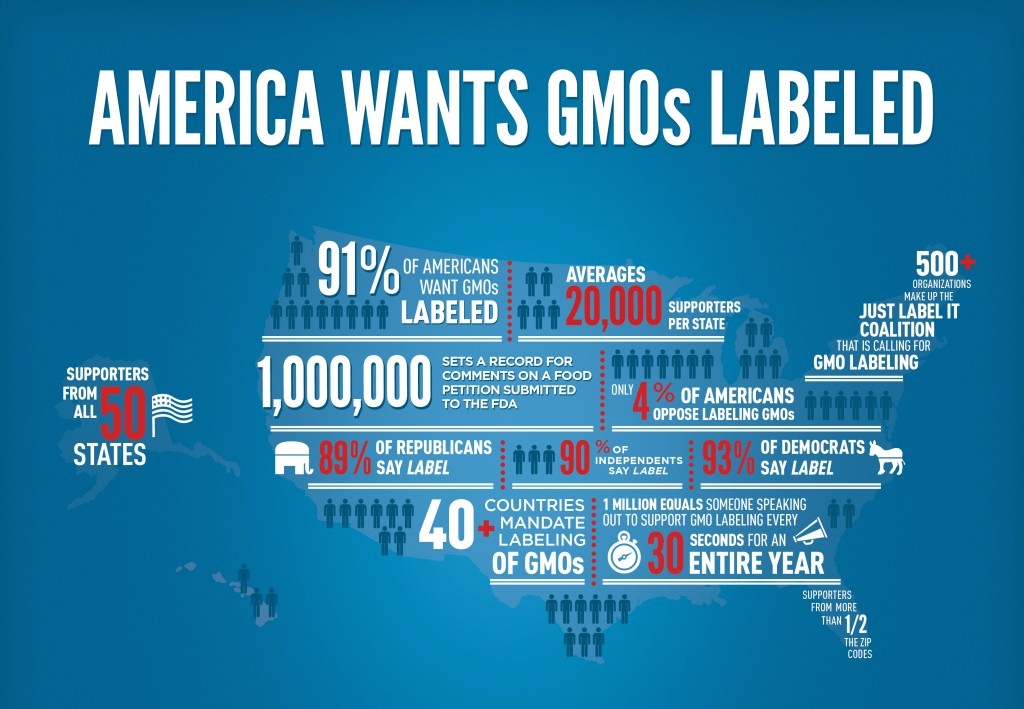
Who wouldn’t want to know what’s in their food? In 2012, California voters decided they would rather remain blissfully unaware when it comes to genetically modified ingredients, voting down a measure that Big Ag and food producers spent billions campaigning against.
In 2013, voters in Washington followed suit.
But a recent poll suggests that 77 percent of residents in the Northwestern region of the U.S. would prefer that GMO-containing foods be labeled, so maybe something will change soon.
DHM conducted surveys in three states—Washington, Oregon, and Idaho—and found that residents would prefer to know what’s inside their groceries rather than sit in the dark.
The poll results come as Oregon confirmed Wednesday, based on tallies of more than 155,000 signatures, that voters will go to the polls on a labeling measure in November. There, 77 percent of respondents said they support labeling GMOs, while 12 percent oppose GMO labeling.
Interestingly, despite Washington voters squashing a similar measure last year with only 45 percent supporting labeling, the new survey found 69 percent in favor of GMO labels.
“We now have two states — Washington last year and California the year before – where they saw polling numbers like this, not that far before an election, and then saw things change quickly,” said DHM Research Director John Horvick, suggesting Oregon’s 77 percent poll results won’t necessarily translate to a victor in November.
Opponents, including the Grocery Manufacturer’s Association and the seed giants like Monsanto and Syngenta, all of whom spent millions combating the labeling bills in California and Washington, are spreading the message that passing such a bill would also pass along increased costs to consumers at little benefit.
“This is 100 percent safe technology,” said Katie Fast, vice president of public policy for the Oregon Farm Bureau. “You won’t be able to find a credible, peer-reviewed study that says there’s health impacts or environmental impacts.”
Interestingly, supporters of GMO-labeling rightfully point out that there are many unanswered questions about GMO safety, including some studies suggesting their dangerous implications on both human health and the environment.
Sixty-four countries require the labeling of GMO foods. Could they really all be wrong? Maybe it’s time for president Obama to join the rest of the world and fulfill his promise he made in 2007 to label foods containing genetically modified ingredients.
“We really think we’re going to win this race by Oregonians talking one-on-one with other Oregonians about why this issue is so important,” said Sandeep Kaushik with the Oregon Right to Know Coalition. “And having those folks counteract the false claims that are coming from the other side.”
Click here to donate to the Oregon Right to Know campaign and help pass the state's GMO labeling law in November.
3 WAYS TO SHOW YOUR SUPPORT
- Log in to post comments














